 NERC invites nominations for membership and affiliate membership of the NERC Peer Review College by 27 January 2012. Those selected will make an important contribution to determining the research that NERC funds and have a pivotal role in maintaining its quality. The Council is looking for College members with a high level of expertise and experience, who are prepared to devote sufficient time and take responsibility for contributing to these key decisions. They are asking you who you think should be representing the environmental sciences community and peer reviewing applications to the NERC by nominating yourself or a colleague for membership. Further information and guidance on how to apply can be found on the NERC website at http://www.nerc.ac.uk/funding/assessment/peerreview/members-call.asp or by contacting the College team (college@nerc.ac.uk).
NERC invites nominations for membership and affiliate membership of the NERC Peer Review College by 27 January 2012. Those selected will make an important contribution to determining the research that NERC funds and have a pivotal role in maintaining its quality. The Council is looking for College members with a high level of expertise and experience, who are prepared to devote sufficient time and take responsibility for contributing to these key decisions. They are asking you who you think should be representing the environmental sciences community and peer reviewing applications to the NERC by nominating yourself or a colleague for membership. Further information and guidance on how to apply can be found on the NERC website at http://www.nerc.ac.uk/funding/assessment/peerreview/members-call.asp or by contacting the College team (college@nerc.ac.uk).
Category / Research news
The Leverhulme Trust are coming to BU…hold the date

On 1st February 2012 Jean Cater from the Leverhulme Trust is coming to BU.
This is a fantastic opportunity to find out more about how the Leverhulme works, what they are looking for in a proposal and what they fund.
The Leverhulme Trust offers a range of funding opportunities – across all disciplines. This includes research grants, international networks, early career fellowships, research fellowships and more.
The session will cover:
- where the Leverhulme sits in the funding spectrum
- schemes and application procedures
- things to bear in mind if applying
- plenty of time to ask questions too.
This session is for you if:
- you have a research idea and wonder if the Leverhulme Trust might be an appropriate funder
- you are developing a funding proposal for the Leverhulme Trust
- you don’t know much about the Leverhulme Trust and would like to find out more
Details:
- Date: Wednesday, 1st February 2012
- Time: 2-4pm
- Place: Thomas Hardy Suite – PG 146
Information about how to book will come in January 2012. There is limited space so please watch this space for more information.
In the meantime, if you have any questions please email Caroline O’Kane
Engage 2011 – public engagement is crucial for universities!
T he National Co-ordinating Centre for Public Engagement (NCCPE) held their second national conference on 29 and 30 November 2011 in Bristol and three members of staff from Bournemouth University School of Health and Social Care were lucky enough to attend this highly stimulating, engaging and informative conference.
he National Co-ordinating Centre for Public Engagement (NCCPE) held their second national conference on 29 and 30 November 2011 in Bristol and three members of staff from Bournemouth University School of Health and Social Care were lucky enough to attend this highly stimulating, engaging and informative conference.
The conference themes were:
- making an impact with your research
- creating an engagement culture
- effective partnerships and engaging students
There was representation from universities across the United Kingdom and Ireland as well as from several Research Councils, HEFCE and a large number of research funding bodies and support organisations.
A summary of the conference discussions will be posted on the NCCPE website shortly. See http://www.publicengagement.ac.uk/news-and-events/events/engage-2011-making-impact
We chose from a wide range of workshops in addition to the four plenary sessions. Much of the conference content was about learning from the Beacon sites in Manchester, Edinburgh, Durham/Newcastle, Norwich, UCL, and Wales. http://www.publicengagement.ac.uk/about/beacons
We learned about the manifesto for public engagement which 50 UK universities have signed up to and we heard from two universities who have signed the manifesto and who talked about their work in developing a strategic approach to public engagement and its impact on the university, its students and staff and its impact on society. Successes in public engagement lead to successes in securing funding. http://www.publicengagement.ac.uk/why-does-it-matter/manifesto
The NCCPE introduced a tool, ‘the Edge tool’ for universities to undertake their own baseline assessment of where they are in relation to the levels of public engagement which helps to plan a way forward for embedding an engagement culture across the organisation. https://www.publicengagement.ac.uk/sites/default/files/The%20EDGE%20tool.pdf
We also heard about the guidance available from the RCUK about how to use public engagement with research as a pathway to impact www.rcuk.ac.uk/kei/impacts
We heard about a variety of approaches to public engagement, ranging from TV appearances with consequent email communications from members of the public, public lectures, visits to schools, engaging local businesses and community partners through to dialogue with members of the public (guidance at http://edinburghbeltane.net/content/dialoguetheory and http://edinburghbeltane.net/content/dialoguehandbook).
If you would like to hear more about the conference and how you might increase public engagement in your work, please get in touch with Louise Worswick lworswick@bournemouth.ac.uk , Jennifer Roddis jroddis@bournemouth.ac.uk or Angela Turner-Wilson wilsona@bournemouth.ac.uk
As part of the new Fusion strategy, BU is committed to investing in public engagement and developing an engagement culture. The UET has recently approved a proposal to invest in two public engagement posts in 2012 – further details on the blog soon!
Publication of the Government’s Innovation & Research Strategy for Growth
The government have just announced their ‘Innovation and Research Strategy for Growth’ – information regarding the policy and supporting documentation can be found at the following links:
Fusion event 14 December – final agenda now available!

On the afternoon of the 14 December 2011 we will be launching the Fusion Seminar and Conference Series with an event focused around launching the eight BU Research Themes.
The event will combine time for cross-BU networking within these themes, with sessions led by theme champions focusing on defining the challenges in education, research & practice within each theme.
The FINAL programme is now available here: Fusion event 14/12/11 FINAL programme
You can still register for the event and sign-up for the themes most relevant to you using the form below.
Critical thinking and professional judgement for social work
Professional judgement, communication and critical reflection are vital aspects of a social worker’s role and a new book, ‘Critical thinking and professional judgement for social work’, aims to empower post-qualifying students to develop these skills.
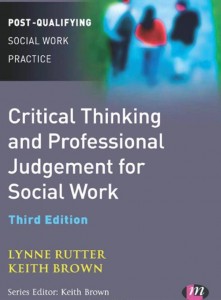 Author Lynne Rutter from the Centre for Post Qualifying Social Work at Bournemouth University explains more about professional learning, a new way of thinking and her own research.
Author Lynne Rutter from the Centre for Post Qualifying Social Work at Bournemouth University explains more about professional learning, a new way of thinking and her own research.
“I am intrigued by the psychology associated with learning. It is obviously an emotional and very personal experience, especially for qualified practitioners, but it should also be an empowering experience.
“For me, professional higher education is about developing more complex thinking which has practical, reflective, personal, moral, as well as objective, conceptual and theoretical aspects. All these aspects are part of professional reasoning and judgement and ultimately professional understanding and knowledge, and so are equally important.
“My journey has led me to understand that there is a productive and empowering synergy here if no one aspect is privileged over the others and if a professional perspective becomes a focus. These were very important elements within the professional doctorate which made it very meaningful and useful for my own practice. The book brings much of this work together and aims to highlight and develop the complex thinking associated with professional learning as a key part of developing confidence and authority in a professional role.”
Order a copy of ‘Critical thinking and professional judgement for social work’.
Google Under-the-Earth: Seeing Beneath Stonehenge
Google Under-the-Earth: Seeing Beneath Stonehenge is the first application of its kind to transport users around a virtual prehistoric landscape, exploring the magnificent and internationally important monument, Stonehenge.
The application was developed by Bournemouth University archaeologists, using new field data gathered during their work with colleagues from the universities of Sheffield, Manchester, Bristol, Southampton and London as part of the Stonehenge Riverside Project. Google Under-the-Earth works by adding layers of archaeological information to Google Earth technology.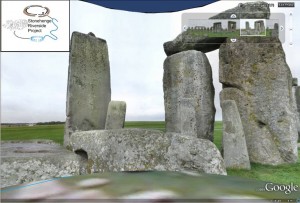
The unique visual experience lets users interact with the past like never before. Highlights include taking a visit to the Neolithic village of Durrington Walls, a trip inside a prehistoric house and the opportunity to see reconstructions of Bluestonehenge at the end of the Stonehenge Avenue and of the great timber monument called the Southern Circle, as they would have looked more than four thousand years ago.
The project is funded by the Arts and Humanities Research Council (AHRC) and Google Research Awards, a program which fosters relationships between Google and the academic world as Google fulfils its mission to ‘organize the world’s information and make it universally accessible and useful.’
But this fabulous educational and cultural tool does not end with Stonehenge. Archaeological scientist Dr Kate Welham, project leader at Bournemouth University, explained that it is the start of something much bigger.
“It is envisaged that Google Under-the-Earth: Seeing Beneath Stonehenge could be the start of a new layer in Google Earth. Many of the world’s great archaeological sites could be added, incorporating details of centuries’ worth of excavations as well as technical data from geophysical and remote sensing surveys in the last 20 years,” she said.
Dr Nick Snashall, National Trust Archaeologist for Stonehenge and Avebury World Heritage Site, said: “The National Trust cares for over 2000 acres of the Stonehenge Landscape. Seeing Beneath Stonehenge offers exciting and innovative ways for people to explore that landscape. It will allow people across the globe, many of whom may never otherwise have the chance to visit the sites, to share in the thrill of the discoveries made by the Stonehenge Riverside team and to appreciate the remarkable achievements of the people who built and used the monuments.”
You can download the application from the Google Under-the-Earth: Seeing Beneath Stonehenge site. The tool is easy to use and requires Google Earth to be installed on your computer.
BU screening of The PHD Movie goes down a treat!
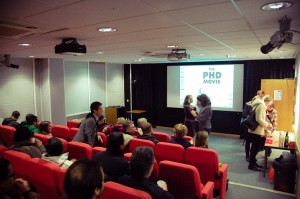 Last night was the BU premiere of The PHD Movie, a film based on the popular comic strip PHD Comics.
Last night was the BU premiere of The PHD Movie, a film based on the popular comic strip PHD Comics.
The event was attended by approximately 50 BU staff and students, plus a couple of local residents. Despite running out of popcorn early on, everyone had a good time and there was lots of laughter! This was a fantastic opportunity for our PGR students and supervisors to get together socially and have fun 🙂
We’re hoping to hold another screening of The PHD Movie one lunchtime in January – watch this space for further information!
You can always catch up with the latest comic strip from PHD Comics on the PG Research page of the BU Research Blog!
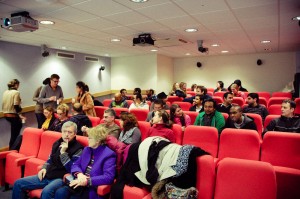
Consumer behaviour in virtual worlds
A prestigious journal has awarded two Bournemouth University (BU) academics the ‘Best Paper’ accolade for their work in the largely unstudied domain of consumer behaviour in digital virtual spaces, including video games, virtual communities and the web.
‘Concepts and practices of digital virtual consumption’, by BU’s Dr Janice Denegri-Knottand Dr Mike Molesworth, was among the most downloaded work published by Consumption Markets and Culture last year.
The paper examines digital virtual consumption (such as owning luxury cars in a video game), the relationship it has within the real material world and the appeal of consumption that is deprived of a material, physically tangible form.
 Denegri-Knott and Molesworth think of consumption on spaces like eBay, Amazon and World of Warcraft as somewhere between the consumers’ imagination and material consumption, and believe it is charged with transformative potential for its users.
Denegri-Knott and Molesworth think of consumption on spaces like eBay, Amazon and World of Warcraft as somewhere between the consumers’ imagination and material consumption, and believe it is charged with transformative potential for its users.
Consumers can fulfil all sorts of daydreams, such as finding a designer dress on eBay, or performing the fantasy of being a powerful wizard. They don’t just look and ask ‘what might it be like’, but may ‘try on’ being an entrepreneur, someone with wealth, a collector, a trader, an advertiser, a criminal, a hero, a warrior, or many other ways of being.
Their roles are enhanced as the scripts available to them expand and can be tested within relatively small timescales. The digital virtual individual may be an avid collector one year, a warrior hero the next, and a successful entrepreneur the year after that. The video game player may be a successful criminal one week and a racing driver the next.
Denegri-Knott and Molesworth believe more emphasis is needed on the relationship between the virtual realm and the real-world and, as digital virtual consumption is largely unstudied, they propose an integrative view for further research.
“The paper was written in the spirit of mapping out potential avenues for research, and also to give us some kind of conceptual frame to make sense of consumption in emerging digital virtual spaces,” said Dr Denegri-Knott. “We now have a body of work that looks at the way in which users consume through eBay, from which we have been able to draw some insights on the acceleration of consumer desire and the problems this creates. We now would like to develop the theme of transformative potential in digital virtual consumption; that is to see how consumers make sense of their experiences and how they integrate these into their everyday lives.”
The pair are also now researching the experience of owning digital virtual goods, in particular the ways in which consumers become attached to certain goods, and how they maintain their preferential stature.
Dr Denegri-Knott concluded: “We were both delighted and surprised to hear that our paper was so well received by the readers of the journal and by the judging panel. This is a real achievement for the Emerging Consumer Cultures Group (ECCG).”
The PHD Movie – screening at BU on Monday 5 December

Love PHD Comics? Then come to the screening of The PHD Movie, hosted at BU on Monday 5 December!
The PHD Movie is being shown at universities around the world and premiered at UCLA in Los Angeles in September. It has also been shown at Harvard University, Yale University, University of Sydney, CERN, and multiple screenings at the Max Planck Institute.
In the UK the movie is only scheduled to be screened at UCL, Oxford, Glasgow, Cranfield, Bristol, Imperial College, York, Newcastle, Liverpool, Birmingham, Cambridge, Edinburgh, Brunel and Bournemouth!
The PHD Movie is a live-action adaptation of the popular online comic strip by Jorge Cham (www.phdcomics.com). It was filmed on location at and was produced in partnership with the California Institute of Technology (Caltech).
The film introduces audiences to the unique and funny culture of Academia and follows four graduate students (Cecilia, Mike, Tajel and the “Nameless Grad Student”) as they struggle to find balance between research, teaching and their personal lives with humor and heart.
The Movie was produced and directed by and stars real PhD students and researchers.
The Bournemouth screening will be held on Monday 5 December between 5pm-7pm in the Screening Room (W241), Weymouth House on the Talbot Campus.
It is free to attend!
Places at the screening are limited so complete the booking form below if you’d like to come along.
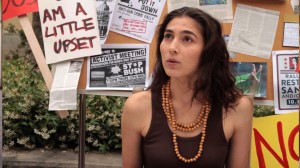
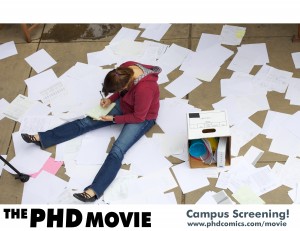
The blog has been accessed by over 16,000 unique visitors in 4 months!
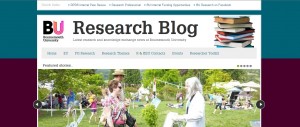 Wow! We’ve been monitoring engagement with the blog now for four months using the fabulous Google Analytics tool. The stats below are based on the period 25 July to 29 November 2011 (128 days).
Wow! We’ve been monitoring engagement with the blog now for four months using the fabulous Google Analytics tool. The stats below are based on the period 25 July to 29 November 2011 (128 days).
On average during this period the blog received 16,017 unique visitors, each spending approximately 1.42 minutes on the site. The blog is generally much busier on weekdays attracting between 250 and 500 unique visitors each day. In total there have been over 40,000 page views.
53% of visitors find us via internet search engines. The top search terms led readers to our blog over the past four months are:
- culture
- transport
- innovation
- santander
- ocean waves
- security
- ocean
- bournemouth
- graphene
- racism
- human rights
- bournemouth university research blog
- health
- humanities
- poverty
- ict
- bu research blog
- bu logo
- hefce ref training events
- bu
37% of visitors are direct traffic, i.e. via the web address, the BU Staff Portal, or the Daily Digest email. This is excellent as it shows that you lovely people who work at Bournemouth University are using the blog – hooray!
10% of visitors are referred to our blog by external sites. Our top referring sites are:
- external BU website
- Facebook (keep ‘liking’ our posts and share the BU love with your Facebook friends!)
- Research Fundamentals blog
- Twitter (keep retweeting our posts to promote BU externally!)
- Christos Gatzidis’ blog
- University of Lincoln Research Office Blog
- Eventbrite
- Bournemouth Media School website
- Simmons College, USA (Open Access Directory)
- Earlham College, USA
- YouTube
At present 32% of visits to the blog are made by returning visitors and 68% are made by new visitors.
Our visitors to date have come from 142 different countries (see the map below). The top ten countries viewing the blog are:
Within the UK most visitors are based in:
- Bournemouth
- London
- Poole
- Southampton
- Bristol
- Leeds
- Manchester
- Edinburgh
- Nottingham
- Birmingham
Our 10 most accessed pages to date are:
- Main blog homepage
- EU blog homepage
- PGR blog homepage
- Partner Search – Ocean Waves an Energy Alternative
- Culture tag
- Transport tag
- Want to Gain a Marie Curie Fellowship?
- Launch of the BU Research Development Fund
- BU Research Themes homepage
- BU Research tag
This is all excellent news 🙂 We’re always open to receiving feedback about the blog – please email us at any time with any comments, suggestions, etc, or add a comment to this blog post.
If you would like access to add your own stories and posts to the blog then email me (jnortham@bournemouth.ac.uk) and I’ll get you started!
We last reviewed the visitor stats on the Blog in August – you can read that previous post here: Does Anybody Read this Blog? Yes!
New round of the BU Fusion Fund now open!
 This week BU is proud to launch a new round of the BU Fusion Fund to support staff innovation around the fusion of education, research and professional practice. Details and the application process for the fund are set out in the attached documents and the fund forms part of BU’s Higher Education Innovation Fund (HEIF) Strategy.
This week BU is proud to launch a new round of the BU Fusion Fund to support staff innovation around the fusion of education, research and professional practice. Details and the application process for the fund are set out in the attached documents and the fund forms part of BU’s Higher Education Innovation Fund (HEIF) Strategy.
The idea is to support innovative ideas which lead to employer, business or industry engagement enhancing core BU activity of research and education. Availability of funds are modest in the first year (although build in subsequent years) but the key is to provide an opportunity for staff to explore innovative ideas around Fusion. Ideas for new courses, enterprise ventures, industry secondments, or employer engagements can all be explored by this fund.
It is designed to enable staff to develop new ideas and innovations around FUSION!
The deadline for the next call is 13 January 2012 – good luck!
Available documents:
You can access the BU2018 Vision and Values website here: BU2018 website

Fusion event 14 December – draft agenda now available!

On the afternoon of the 14 December 2011 we will be launching the Fusion Seminar series with an event focused around launching the eight BU Research Themes.
The event will combine time for cross-BU networking within these themes, with sessions led by theme champions focusing on defining the challenges in education, research & practice within each theme.
The draft programme is now available here: Fusion event 14/12/11 DRAFT programme
You can register for the event and sign-up for the themes most relevant to you using the form below.
PHD Comics the Movie comes to BU!

Love PHD Comics? Then come to the screening of The PHD Movie, hosted at BU on Monday 5 December!
The PHD Movie is being shown at universities around the world and premiered at UCLA in Los Angeles in September. It has also been shown at Harvard University, Yale University, University of Sydney, CERN, and multiple screenings at the Max Planck Institute.
In the UK the movie is only scheduled to be screened at UCL, Oxford, Glasgow, Cranfield, Bristol, Imperial College, York, Newcastle, Liverpool, Birmingham, Cambridge, Edinburgh, Brunel and Bournemouth!
The PHD Movie is a live-action adaptation of the popular online comic strip by Jorge Cham (www.phdcomics.com). It was filmed on location at and was produced in partnership with the California Institute of Technology (Caltech).
The film introduces audiences to the unique and funny culture of Academia and follows four graduate students (Cecilia, Mike, Tajel and the “Nameless Grad Student”) as they struggle to find balance between research, teaching and their personal lives with humor and heart.
The Movie was produced and directed by and stars real PhD students and researchers.
The Bournemouth screening will be held on Monday 5 December between 5pm-7pm in the Screening Room (W241), Weymouth House on the Talbot Campus.
It is free to attend!
Places at the screening are limited so complete the booking form below if you’d like to come along.
Ground-breaking report published by BU research centre
A new report that will serve as a blueprint for effective leadership in social work and social care has just been published by the Centre for Post-Qualifying Social Work at BournemouthUniversity.
Entitled ‘Leadership and Management Development for Social Work and Social Care: Creating Leadership Pathways of Progression’, the ground-breaking report is co-authored by Professor Keith Brown, Director of the Centre, and Jane Holroyd MBE on behalf of Learn to Care, the body which represents workforce development managers from all local authorities in England.
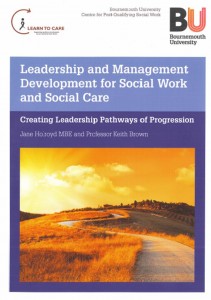 The report provides the UK’s first framework for establishing an effective Leadership and Management pathway in social work and social care. It addresses the major concerns and recommendations identified following the Peter Connelly case by the Social Work Reform Board (2009) and the Munro Review of Child Protection Services (2011) in terms of the call for a clear leadership and management strategy for front line social work managers.
The report provides the UK’s first framework for establishing an effective Leadership and Management pathway in social work and social care. It addresses the major concerns and recommendations identified following the Peter Connelly case by the Social Work Reform Board (2009) and the Munro Review of Child Protection Services (2011) in terms of the call for a clear leadership and management strategy for front line social work managers.
This new framework has been developed over the past 18 months and has involved rigorous testing and piloting. A new underpinning theory and approach, Self-Leadership, which critically emphasises the quality of thinking and developing the abilities to manage self as part of improving personal and organisational performance, has been developed by Professor Brown and Jane Holroyd. Holroyd suggests this model is applicable to all professions, whatever their managerial position, as all professionals will be leaders within their own sphere of influence.
The report also highlights the critical role of assessment and evaluation to demonstrate that individuals have reached the required levels of competence and that a return on the investment is evidenced.
Conor Burns, MP for Bournemouth West, has hailed the framework as enormously important for the future of long term care in the UK.
“Reputationally for Bournemouth University, this is an incredibly important breakthrough. What we are currently doing with social work and social care training is teaching without testing and training without measuring the impact,” he said.
“As a state, we are spending millions and millions and not questioning the effectiveness of that spend”.
The Centre for Post Qualifying Social Work at Bournemouth University is at the leading edge of post qualifying social work education in the UK. It works with over one third of all local authorities in England and over 70 major employers, including training social workers within the armed forces.
The Centre’s portfolio of courses are designed to raise standards in social work practice and help those in social work and social care demonstrate their competence to work within complex situations with the most vulnerable in our society.
Of particular note, this leadership framework has been developed to meet the requirements of the NHS Leadership Qualities Framework and it is anticipated that this will be of real value, especially as we see increasing integration between the NHS and Local Authority community services in the coming months.
You can order a copy of the publication by emailing kbrown@bournemouth.ac.uk
Interested in Public Engagement? Then attend Engage 2011!
We are looking for a volunteers to represent BU and to attend Engage 2011: Making an Impact next week.
Engage 2011 is the annual conference of the National Coordinating Centre for Public Engagement and will be held on Tuesday 29 and Wednesday 30 November in Bristol. Delegates can choose to attend for one day or both days.
Further information about the event (including the programme) can be found here: http://www.publicengagement.ac.uk/news-and-events/events/engage-2011-making-impact
Your attendance will be fully funded by the RDU. If you’re interested in attending contact me (jnortham@bournemouth.ac.uk) as soon as possible and I’ll arrange it for you.
Public engagement is a hot topic in the world of HE at the moment! Over the past 12-18 months in particular there has been a huge push to increase the volume and quality of public engagement. The main reasons for this push have been the increased prominence of the research impact agenda, the need to demonstrate the societal value of research, and accountability to the public purse. In return for contributing to society through public engagement, universities have much to gain and the benefits of this public engagement activities are felt by the university, its staff and students, and the wider public.
BU will be focusing a lot of energy and passion on public engagement in the near future! Attending Engage 2011 is an excellent opportunity for you to find out all about public engagement and to champion it in your Schools.
Want to find out more about Knowledge Exchange and how to engage with business?
 The Enterprise Training Programme is an established training scheme for researchers from any university wanting to learn more about business and the commercialisation of research.
The Enterprise Training Programme is an established training scheme for researchers from any university wanting to learn more about business and the commercialisation of research.
The training consists of four modules (two days each) which will be running in Birmingham from January to March 2012. We cover the essentials of business (strategy, organisation, marketing, finance and business planning), skills training (negotiation and networking) and intellectual property protection and exploitation.
In addition, delegates have an opportunity to socialise and build networks with other entrepreneurially minded academics from a range of other institutions.
The training will be delivered by a mixture of academics and practitioners and will involve lecture style and interactive case study sessions.
For further information or to express your interest in taking part in this programme please contact Catherine Mansell, Programme Director on 0121 414 4905, c.mansell@bham.ac.uk
The RDU has funding available for BU academics to attend this course. If you’re interested, contact me (jnortham@bournemouth.ac.uk) to discuss this further.
RCUK Demand Management week on the blog! AHRC and demand management
 Welcome to RCUK Demand Management week on the blog! Today’s focus is on the Arts and Humanities Research Council (AHRC) and their views on, and actions around, demand management. The AHRC’s current approach is to develop good practice guidelines for institutions (such as good practice in internal peer review and setting up an internal institutional triage system whereby only the best applications are submitted to Research Councils). However, along with the other Research Councils, the AHRC are keen to reduce the number of applications by implementing demand management procedures.
Welcome to RCUK Demand Management week on the blog! Today’s focus is on the Arts and Humanities Research Council (AHRC) and their views on, and actions around, demand management. The AHRC’s current approach is to develop good practice guidelines for institutions (such as good practice in internal peer review and setting up an internal institutional triage system whereby only the best applications are submitted to Research Councils). However, along with the other Research Councils, the AHRC are keen to reduce the number of applications by implementing demand management procedures.
What are the AHRC’s future plans for demand management? – The AHRC’s Delivery Plan for 2011 – 2015 identifies demand management as a key aim of the AHRC, with a view to implementing procedures that will ensure that resource is used to maximum advantage for researchers, HEIs and the AHRC. The AHRC will disseminate information on application success rates and then enter into strategic discussions with HEIs falling below the average to develop ‘self-management of demand’ (p21). If this is ineffective, AHRC will introduce sanctions (e.g. institutional quotas). The AHRC’s approach to demand management will also use more targeted schemes to include longer and larger awards with greater use of the Expression of Interest phase, and an increase in the number of ‘sandpit’ style workshops to limit the number of applications on specific schemes to those which have been invited.
Will sanctions be introduced for repeatedly unsuccessful applicants? – The AHRC only plan to introduce sanctions as a last resort however they will be monitoring success rates as the basis for strategic discussions with institutions and introducing sanctions if deemed necessary.
I am interested in applying to the AHRC. How can I make sure my application stands the best chance of being funded? – BU has established an internal peer review scheme (Research Proposal Review Service) which has been up and running in its current form for almost 12 months now. The scheme is managed by Caroline O’Kane and a whopping 21 proposals have been reviewed since July. If you are submitting an bid to EPSRC then I strongly encourage you to work with Caroline through the RPRS. You can also check the Blog to see what proposal writing sessions are running at BU. For example, on 23 and 24 November Dr Martin Pickard will be visiting BU to run sessions specifically focusing on writing and preparing applications for Research Council funding – read more and book a place here. Martin’s sessions are excellent and always well received, and I would encourage anyone considering applying for research funding to attend.
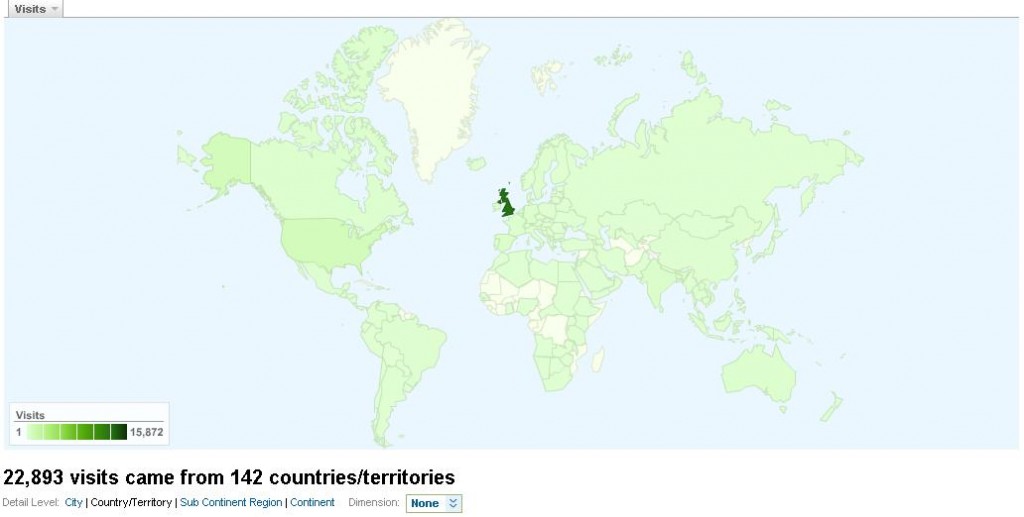











 Upcoming opportunities for PGRs – collaborate externally
Upcoming opportunities for PGRs – collaborate externally BU involved in new MRF dissemination grant
BU involved in new MRF dissemination grant New COVID-19 publication
New COVID-19 publication MSCA Postdoctoral Fellowships 2024
MSCA Postdoctoral Fellowships 2024 Horizon Europe News – December 2023
Horizon Europe News – December 2023